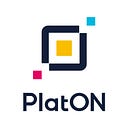PlatON Officially Announced its Blue Paper on Economics in San Francisco
On Jun.27, 2019, PlatON officially announced its blue paper ‘A Blockchain-based Infrastructure for Privacy Computation and Distributed Economies’, the economic model of PlatON by Dr. Chuanwei Zou, Chief Economist of PlatON, in its North-America meetup ‘Consensus, On-chain Governance and Economic Model in World of Blockchain’ co-hosted with Wanxiang Blockchain and HashKey Group.
In this meetup, around 100 delegates including industry experts, distinguished professionals, key opinion leaders from investment, finance and blockchain attended and participated in keynote and panel discussions to share their latest achievement and in-depth views on blockchain and cryptocurrency. Dr. Xiao Feng, chairman and CEO of Wanxiang Blockchain, vice chairman and executive director of China Wanxiang Holdings, delivered the opening speech.
Dr. Chuanwei Zou’s presentation makes a clear clarification on of the theory of economic model of blockchain networks from a theoretical viewpoint, and a comprehensive introduction of PlatON’s economic design. PlatON will apply PPoS + CBFT model to lower the cost of consensus efficiently and strengthen coupling relationship between the economic activities of blockchain network and the ones that support blockchain network, like data and the circulation market of computing power. The economic model will provide support for Energon, the native token in PlatON, and restrain the expansion of scale of mining pool in PlatON blockchain network. By doing so, PlatON will well accommodate scalability, decentralization and security, the trilemma of blockchain technology.
Highlights about PlatON’s Blue Paper on Economics
* Summarizes the Principles of Economic Design of Major Public Blockchains
PlatON’s Blue paper on economics describes the infrastructure financing, principles of economic design of major public blokchains from the perspective of distributed economics, including the token value, block reward, inflation tax, basis of trust, consensus algorithm and cost of consensus.
* Describe the Economic Design of PlatON in Great Detail
PlatON’s blue paper on economics introduces the major goals in PlatON’s economic design, initial allocation, new issuance of Energon, three stages of PPoS, and detailed analysis of the economic design inside the PlatON public Blockchain. PlatON aims at building a infrastructure that is self-financing, self-organized, self-governance and self-sustainable. In PlatON’s public network, the infrastructure can generate enough revenues for its maintenance, and only driven by market mechanism without reliance on centralized authorities. Economic coupling plays an important role in PlatON’s economic design. Decentralization and security are top priorities. Under this circumstance, users will align their interest with the infrastructure.
*Share the Impacts of PlatON’s Economic Design on Its Governance Structure
PlatON’s economic design has strong economic coupling compared with other public blockchain network, which reflects a deep alignment of interests between participants with more commitment and larger exposure, and Engeron. The role and value of economic coupling also reflect on the relationship between DApps and DeFi (Decentralized Finance). To encourage this economic coupling relationship, PlatON foundation will donate a part of initial Energon reserves to DApp sub-communities as the ‘kick start funding’. The stronger the relationship between DApp tokens and Energon reserves chosen by DApp sub-communities, the larger the donation from the PlatON foundation. In a word, PlatON’s economic design is ‘built by the community, shared by the community and governed by the community ’.
‘Trades in data are trickier. Traditional markets for data ownership often fail because it is hard to enforce data ownership. PlatON adopts a different approach. First, we respect data sovereignty and only trade the right to use data. Cryptographic technologies such as homomorphic encryption and secure multi-party computation enforce data ownership. Data owners can secure data in their databases. They can control who use their data, in what ways, and when. Second, we provide methods to price the right to use data. We will make sure data users pay data owners fairly and adequately. This is fundamental for market development.’ Dr. Chuanwei Zou described the contribution of PlatON’s cryptographic-based blockchain network on the safeguarding and enhancing economic activities of blockchain network.
Find us on:
Facebook | Twitter | Telegram | Medium | Linkedin | Reddit | Github
